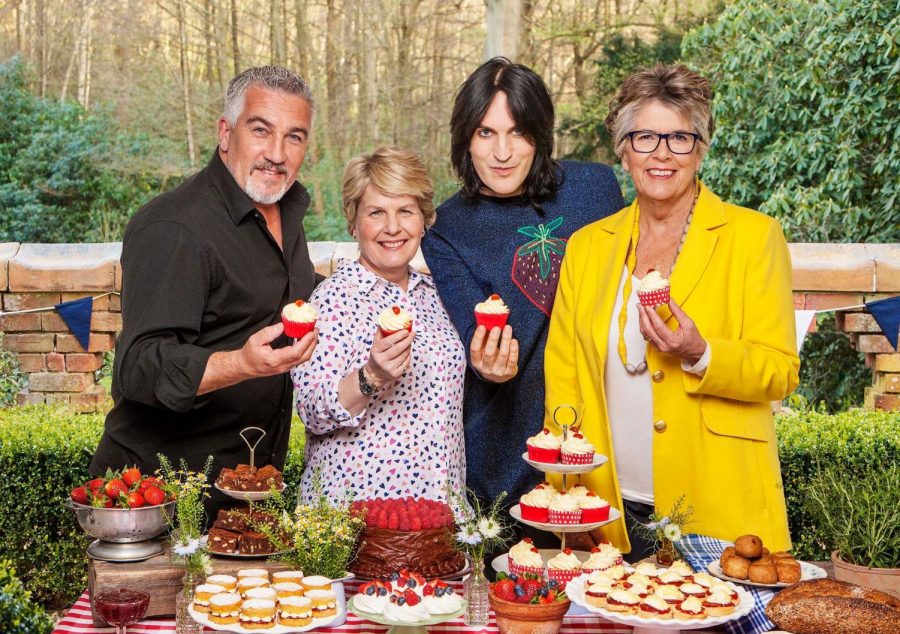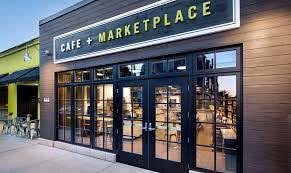Lessons on Slowing Down and Human Resilience: The Great British Baking Show
While I enjoy savory cooking, I’m no baker. Then, why do I love watching the Great British Baking Show? One of my daughters told me that people watch this show because it’s relaxing. I was perplexed. These bakers are stretched and stressed to the max; how could that induce relaxation in its viewers? Yet, I do find the show deeply engaging, and I don’t know why because, while I might whip up a batch of cookies, muffins, or cakes on occasion, I would never bake a single one of these elaborate baking challenges presented in the show. I also have a sour taste in my mouth at the thought of watching a reality TV show. So, how can I, a non-baker, antireality-TV show viewer find myself captivated by this show?
I’ve decided two factors draw me to The Great British Baking Show: the attentional relief of (somewhat) “Slow TV” and the refreshing triumph of the human spirit through protracted stress tests of character. I’m also wondering about COVID-era Montrose lessons that the show could provide.
The relaxing effects of (somewhat) “Slow TV”
Have you heard of the Norwegian train ride filmed for seven straight hours, which attracted the highest TV ratings in Norway? I have to admit: I’m not sure why watching the view through the front window of a long train ride would be relaxing. I tried for two minutes and grew restless. There have also been spin-off blockbusters such as Slow Knitting. If you’re intrigued, check out these videos and this feature story from CBS News.
I’ve also learned that there’s a whole “Slow Revolution.” I guess, before COVID-Quarantine, I was too busy to notice. This talk by Slow author Carl Honore explains why we need to resist what he calls “the virus of Hurry” and to integrate more “slow moments” into our days. Wow, to think that COVID-19 pushed us toward this “Slow Revolution” is intriguing. OK, so I can’t take TV which is that slow. Yet, I think the lessons from this “Slow Revolution” are worth reflection.
I also think that The Great British Baking Show represents Aristotle’s Golden Mean between the two extremes of too-slow and undistracted (think Norwegians looking out a train or knitting for seven hours) and too-fast and overstimulated, such as the Sherlock Holmes series. This scene jerks your eyes with quick-changing camera lens angles; add high-stress music, and this proves quickly exhausting.
But, when I watch the Great British Baking Show, I do relax. The camera moves at a slow pace, pausing at each baker’s station as we watch him or her orchestrating an ordered series of steps. There’s enough variety because the view shifts to a new baker every few minutes. Intervals of warm and humorous banter intervene while mostly mellow music accompanies, along with stunning nature scenes of bleating lambs, delicate flowers, a few ducks floating on a pond, or a rippling steam. There are no commercials either. There is a tone of stillness juxtaposed to steady, measured actions that are focused and shifting at a mostly natural pace. It’s a perfect blend.
Triumph of the human spirit amidst stress tests of character
We’re told that some tens of thousands of British home bakers apply each year, and the field is narrowed to 12 per season. Each weekend, they traverse through three challenges: the signature bake, the technical challenge, and the showstopper challenge. Each week, one contestant wins “star baker” and one is sent home. As viewers journey through a season, they cluster into subtle fandoms, favoring one baker over another for diverse reasons. I find myself as likely to root for those who demonstrate self-effacing humility with good humor as for those who achieve excellence in their “bakes.”
I’m also stunned by the emotional agility these competitors demonstrate, and I wonder if the show screens the candidates for psychological strengths as well as baking prowess. Forgive me for my female honesty, but as a youngest sibling with four sisters (only one poor brother), a mother of five daughters, and teacher to hundreds of adolescent girls over the years, I know how emotional fragility rears its ugly head. The perfectionist who freezes or collapses before a deadline. The low-confidence negative-self-talker who cuts herself down all too often. The overconfident mask that hides insecurities revealed in competitiveness. OK, those are the ugly moments; and these are much forgotten amidst countless acts of courage, appropriate humility, and resilience that I see daily. The competitors on the show shed tears, reveal panicked moments, and one dumped his cake in the trash and forfeited his chances, yet they recover their good humor quickly, despite the time-crunch of their competitions.
At Montrose, of course, students get a lot of time to develop; they don’t have a nerve-crunching series of weekends where they are judged harshly and cast aside after three tries. Instead, they are nurtured gently and encouraged to rise, like gradually formed patissiers. (I learned that fancy term by watching the show, as well as “choux” pastry, which I worried was “shoe” for all too long.)
What do I see among these competitors that affirms my faith in humanity? I see persistence despite the odds, honest humility for setbacks, and open acceptance of well-earned praise. Most of all, I see quick-reset resilience and constant encouragement among the competitors. They form close bonds through their struggles, and they circle like a family of friends and uplift each other with encouraging words and helpful gestures at constant intervals. Sometimes I’ve seen a contestant who is all-too-hard on herself realize that she needs to assert herself with more confidence too.
A Montrose Metaphor
Warriors in a kitchen contest echo like the warriors I try to encourage in the classroom (real and Zoom-ed). I think of my 9th grade students who just completed their magnum opus multi-step analytical essays on Jane Eyre, poised to demonstrate their mastery of the refined art of thorough and complex argumentation. I think of my 11th grade AP students poised to master the new challenges of COVID-mutated AP exams.
And I think that maybe The Great British Baking Show is a metaphor for Montrose: a test kitchen where you’re stretched and challenged, supported and loved, and where you develop appropriate humility, well-earned confidence, ever-ready humor, and gradually rise. There’s also ready hugs (virtual social-distancing ones) to help each girl strive through challenges toward her next personal best. There are plenty of new challenges, messes to clean up in between, and greatness to achieve in moments, along with a kitchen full of sous chefs to provide constant support and encouragement. As we persist in this new challenge of COVID-era learning, the voices of the hosts sending the bakers off for each next challenge echoes: “On your mark, get set — “BAKE!”











